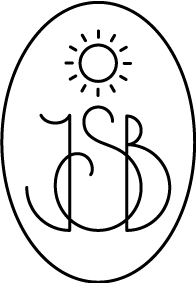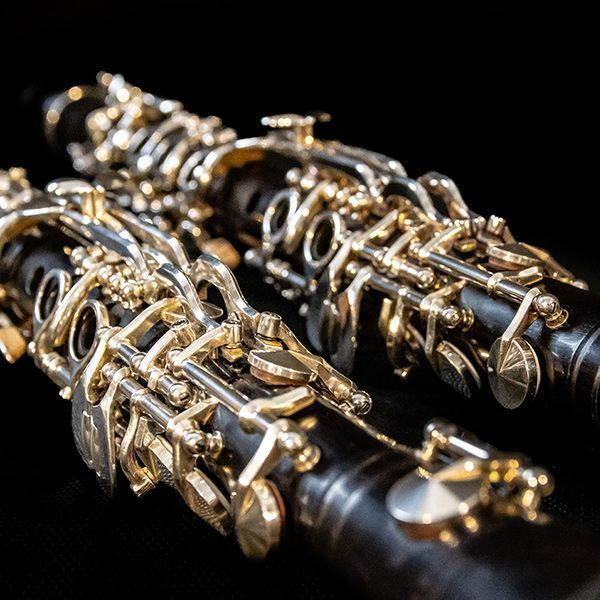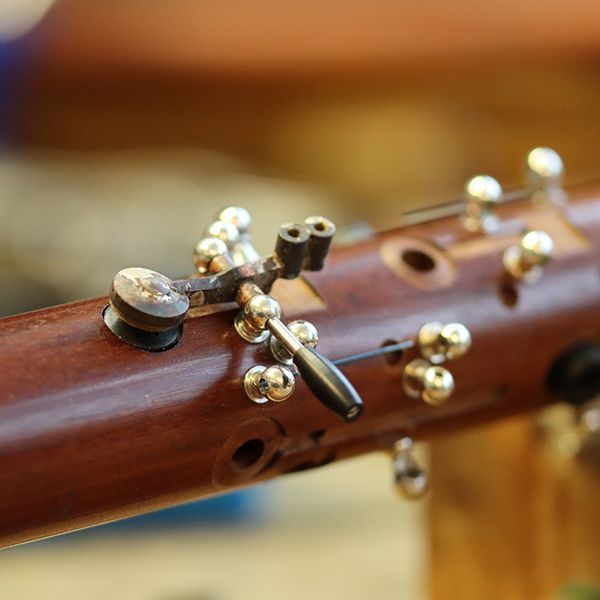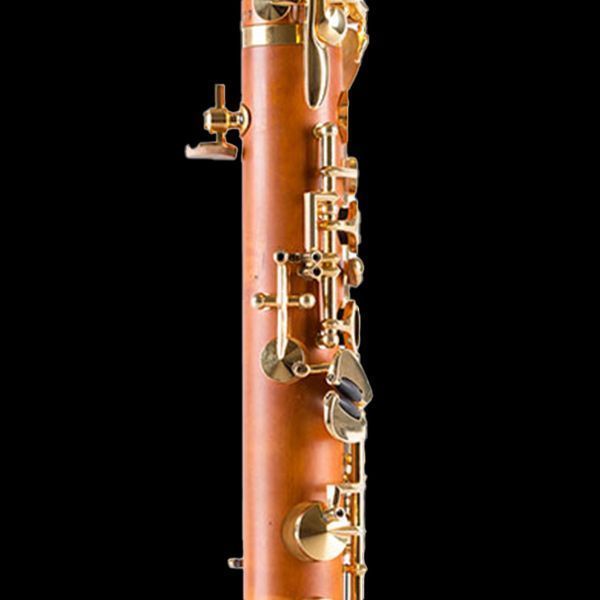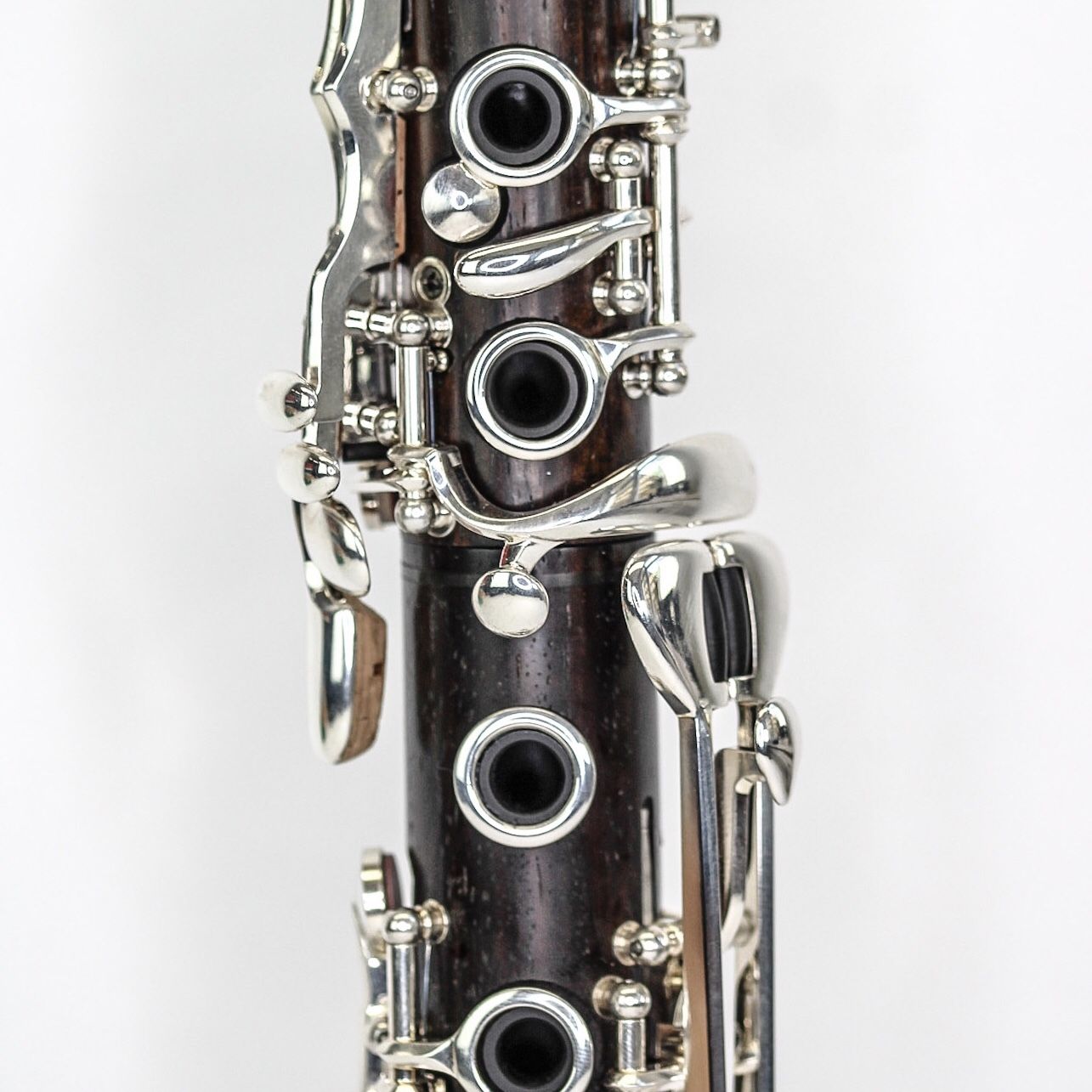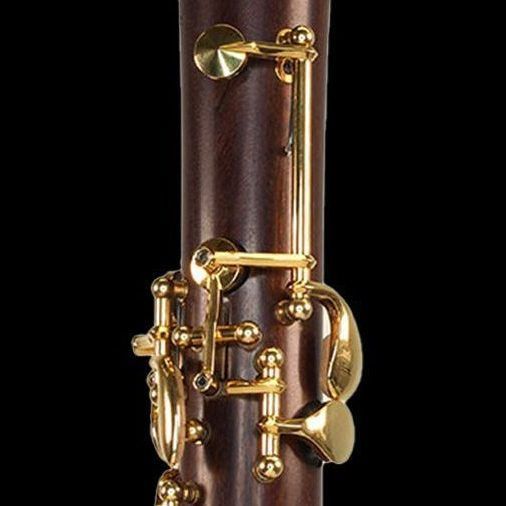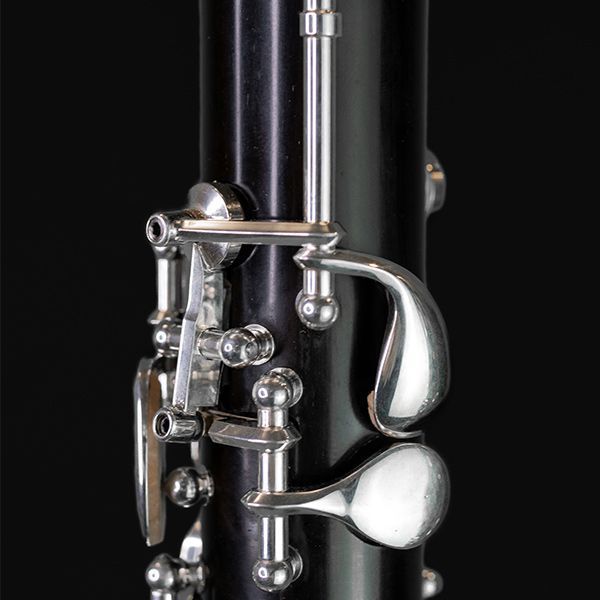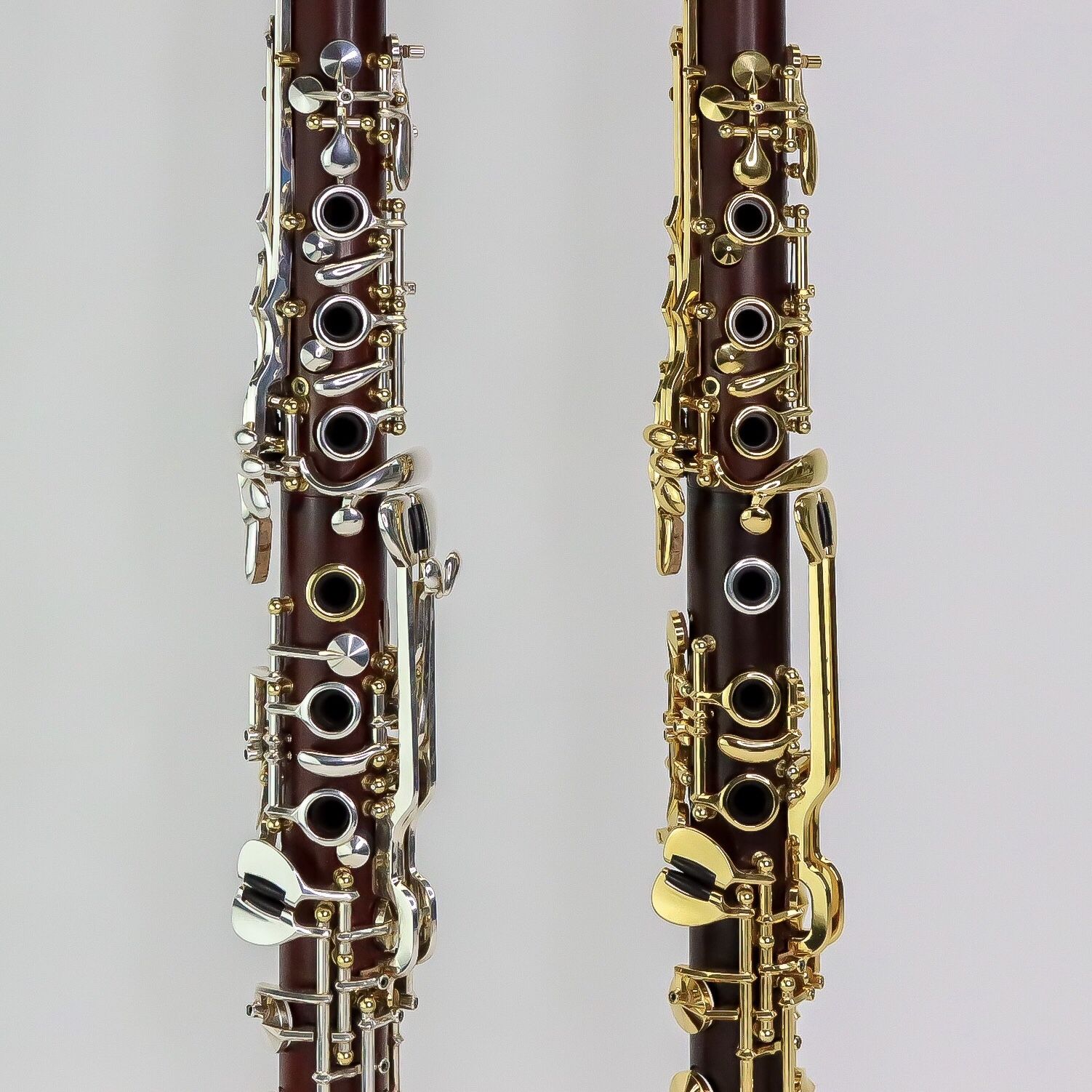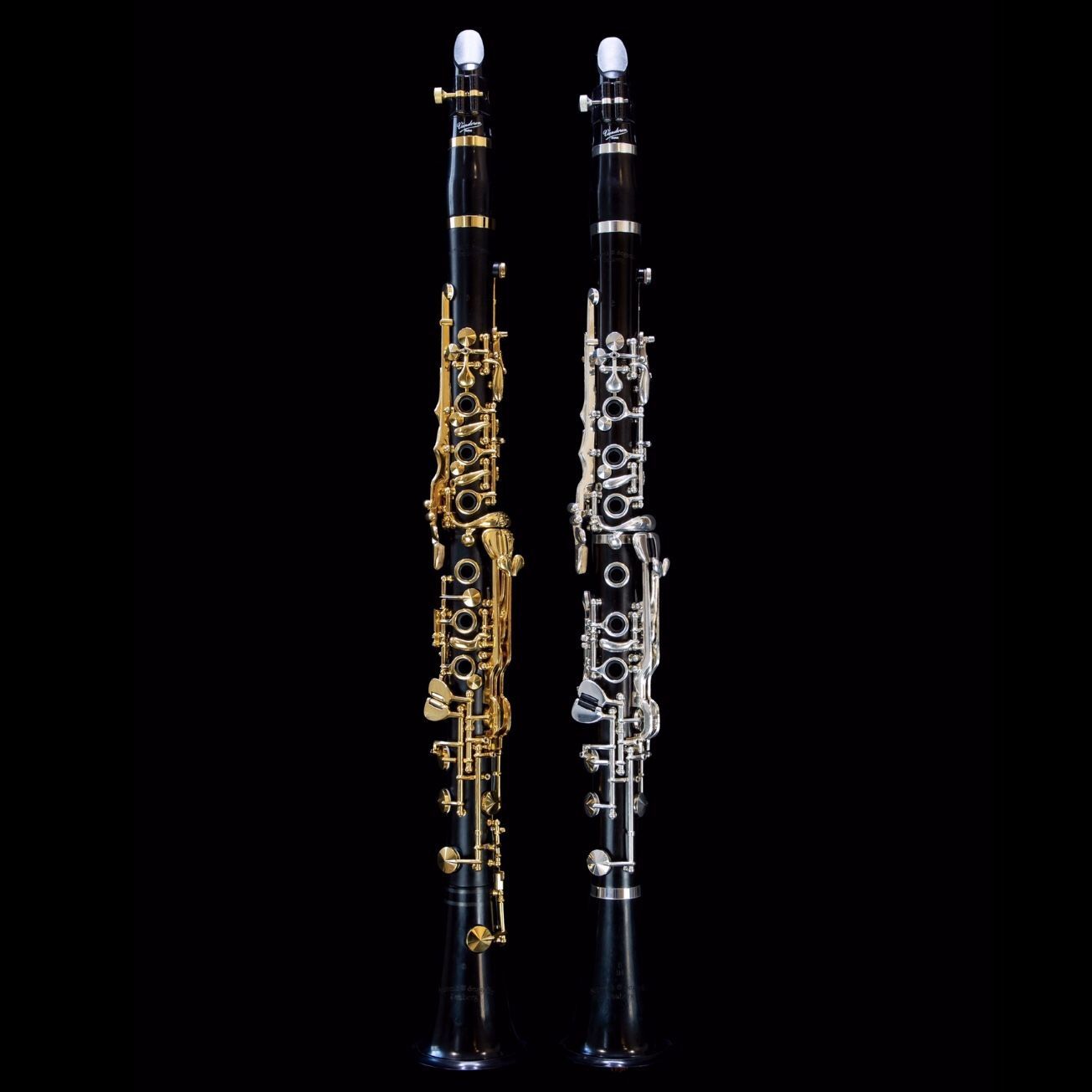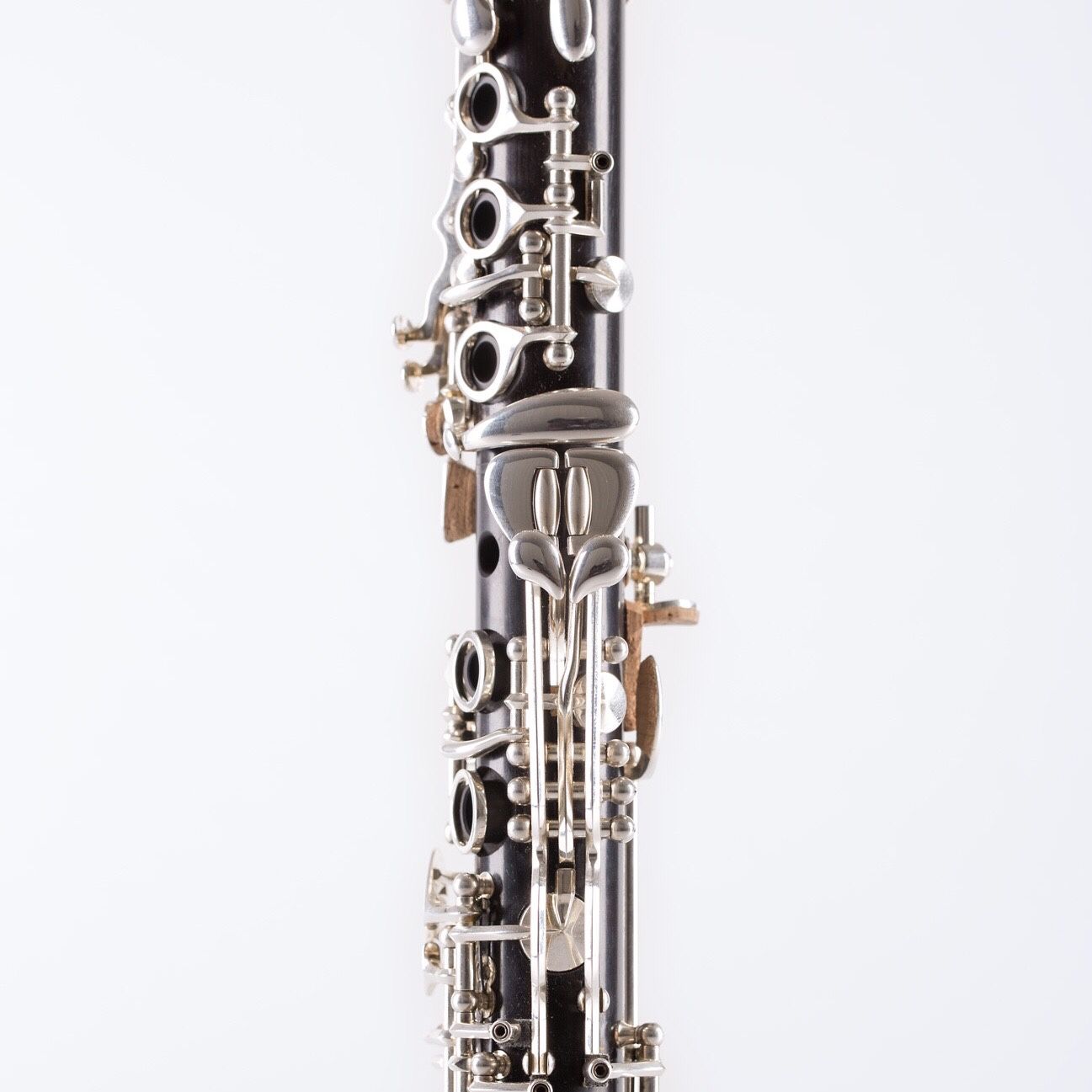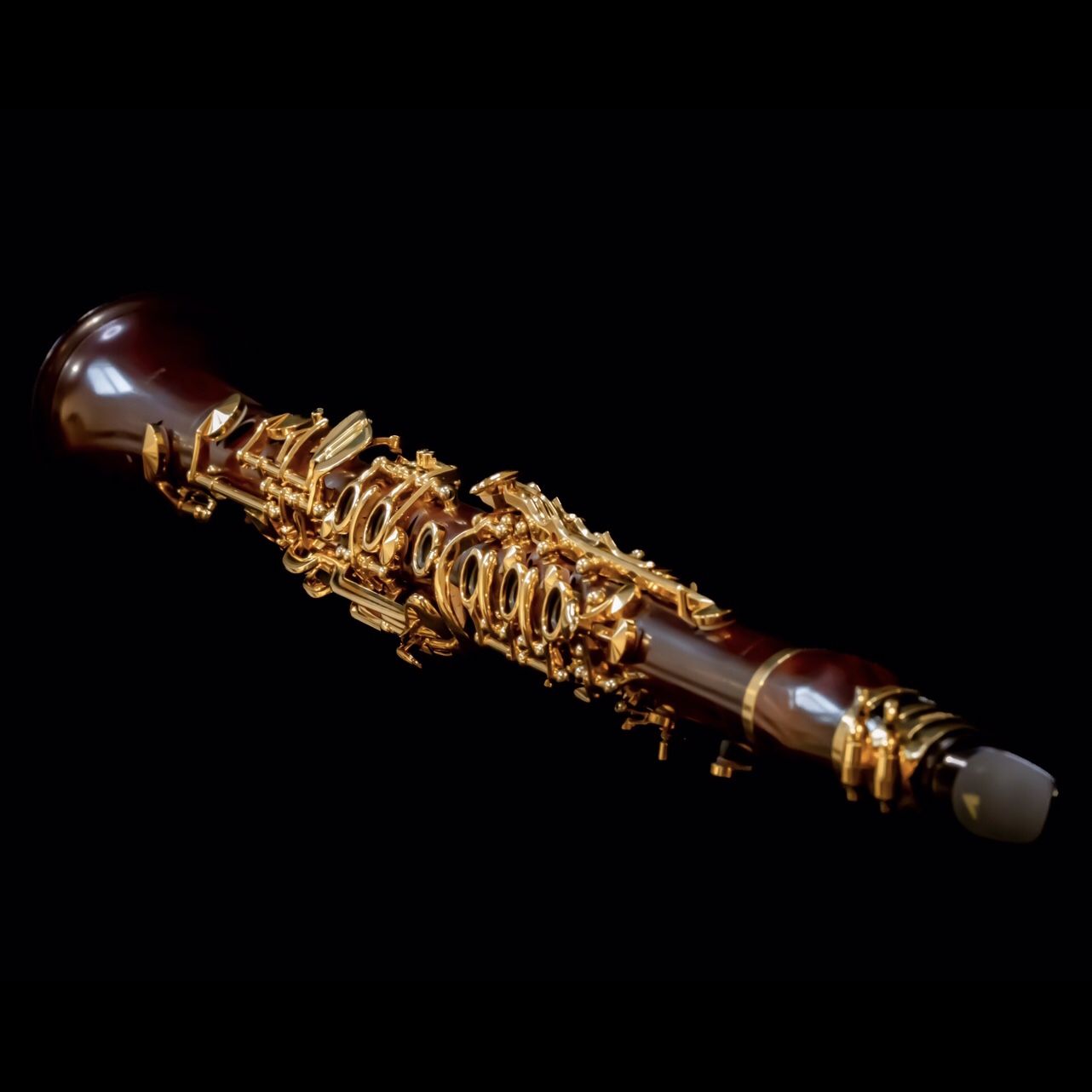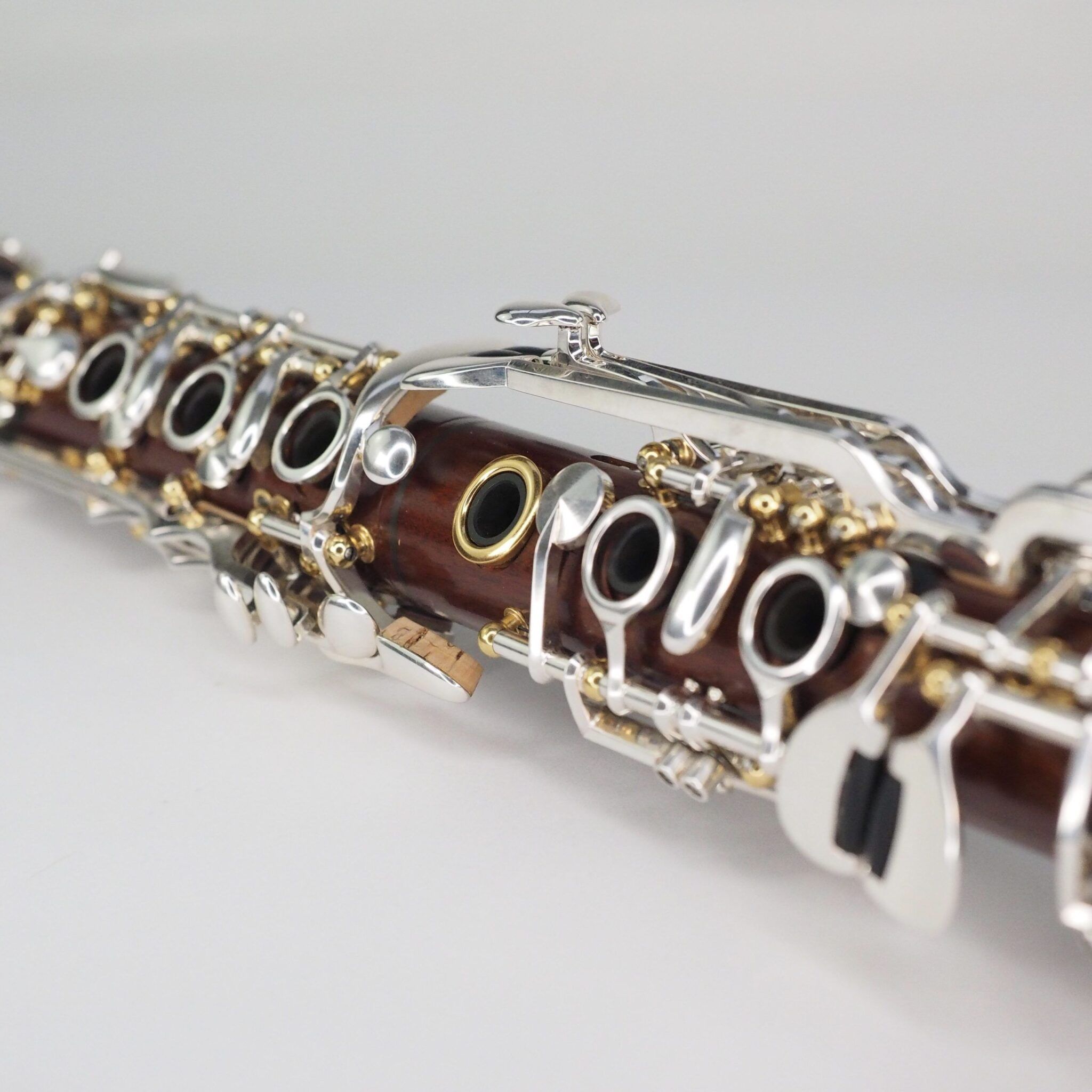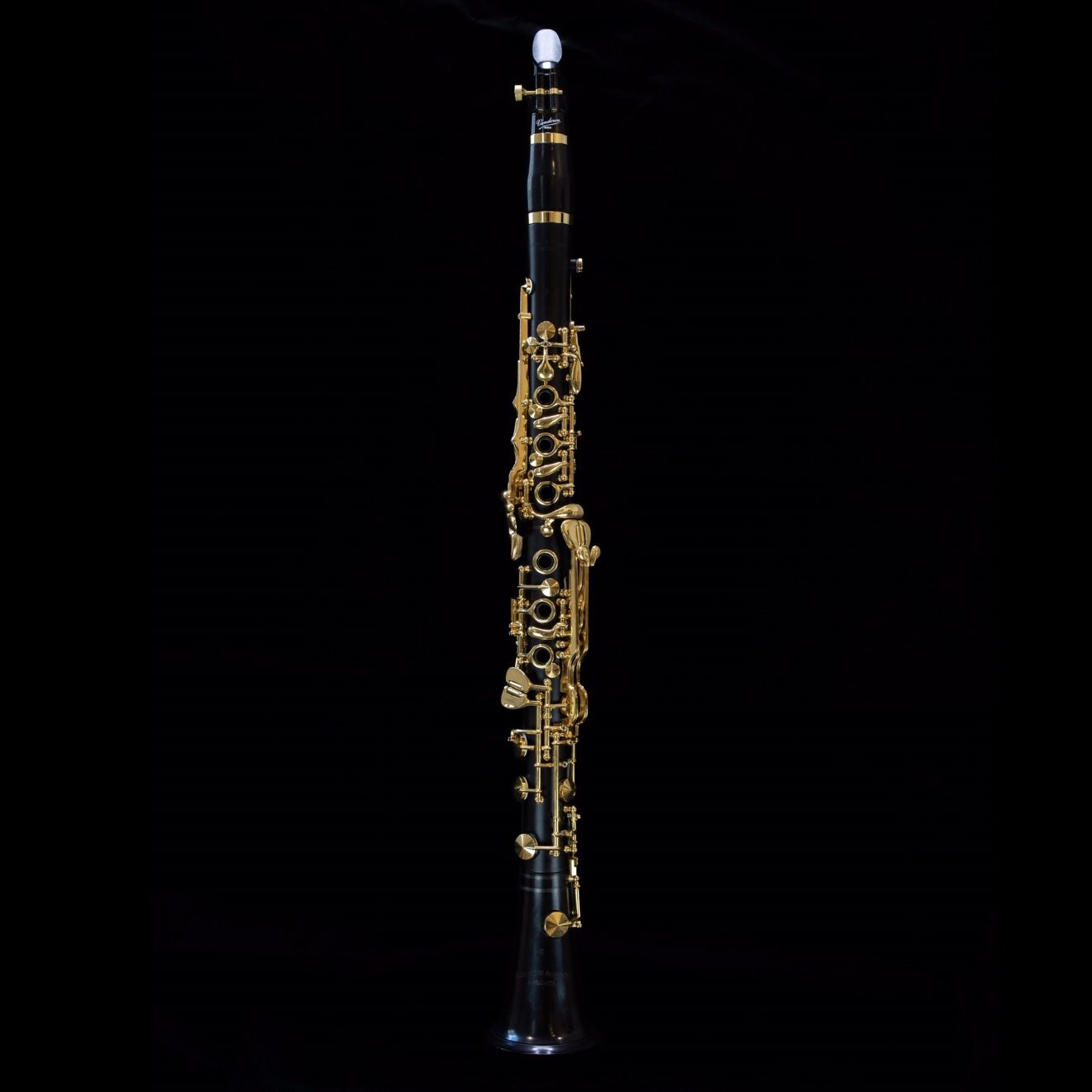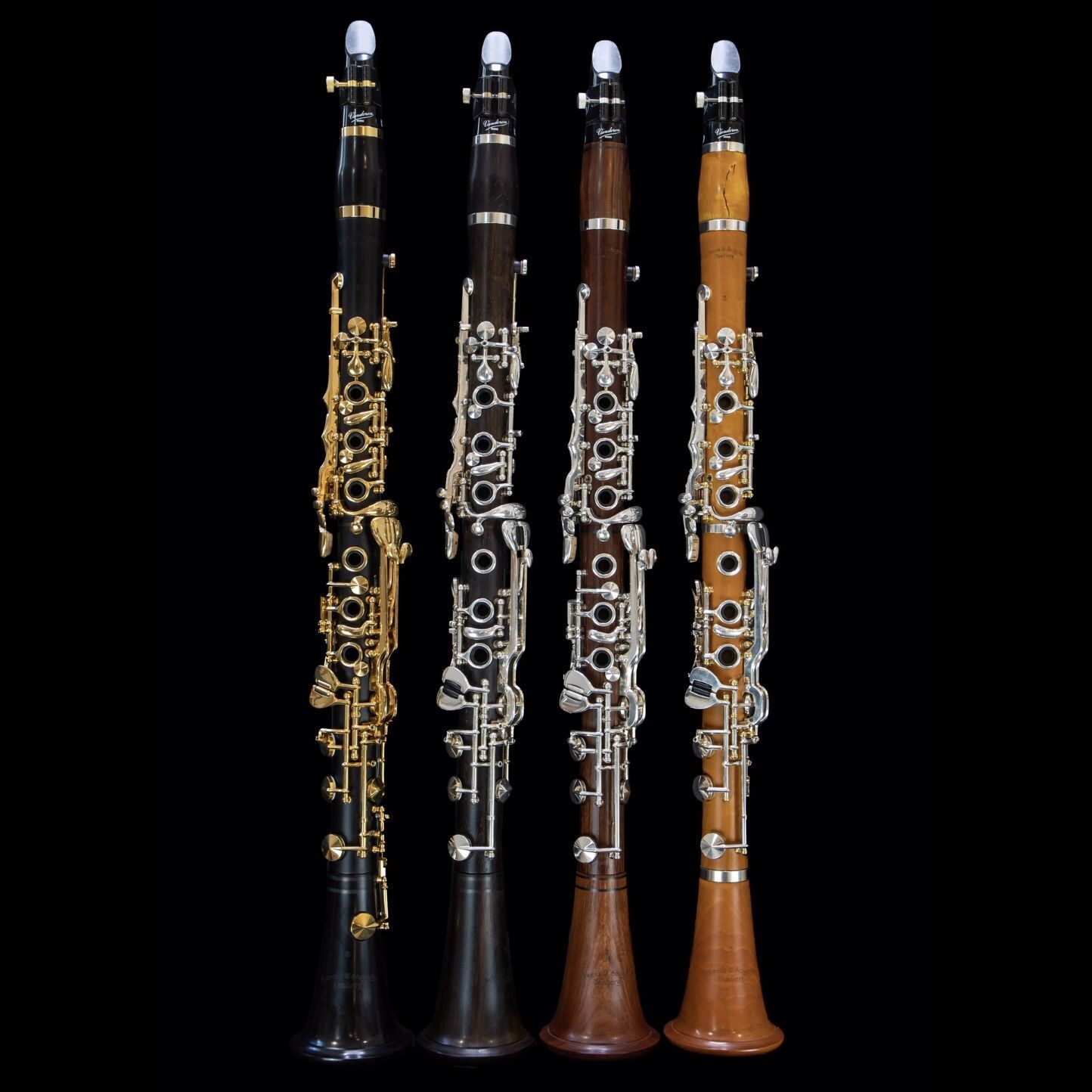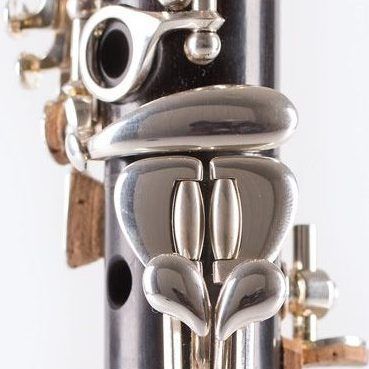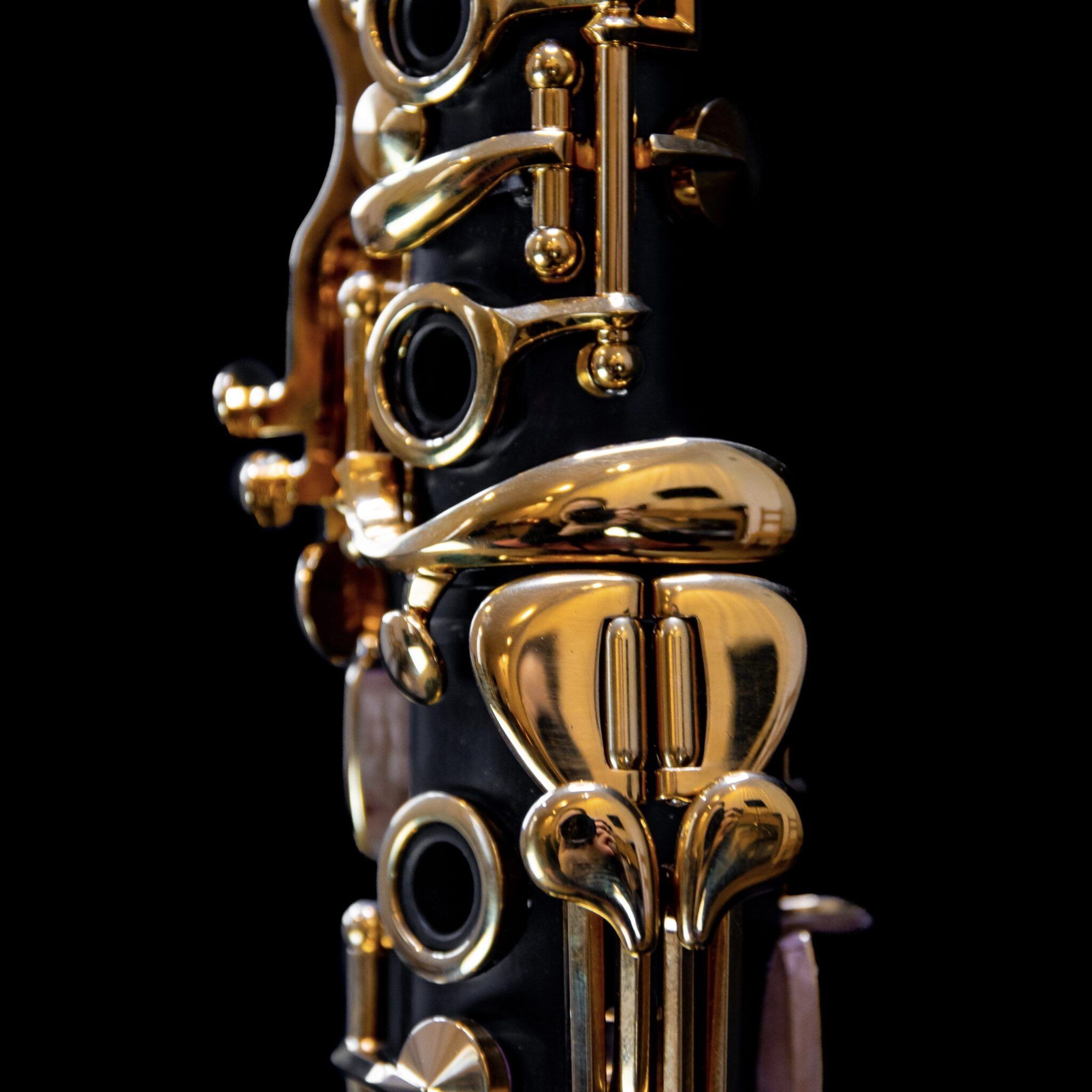
Our model 2000
Discover the timeless beauty, elegance and warm sound of our clarinets with a German bore and the German fingering system.
INDIVIDUAL CHOICE OF WOOD
With our clarinets, we offer you the option of choosing between four types of wood. Each type of wood gives the instrument an individual sound characteristic and allows you to find the perfect sound for your music.
MECHANICAL FEATURES
Register key with bb’ mechanism or connecting mechanism?
bb’ mechanism: This option solves a fundamental physical problem of the clarinet: it ensures an easier response and better intonation in the overblown register thanks to a smaller speaker vent, while at the same time improving the sound of the short bb’ thanks to an additional resonance hole. Clarinets with a bb’ mechanism can ideally do without a bell mechanism, as the bb’ mechanism allows a completely different tuning of the notes in the high and low registers. Out Model 2000 clarinet is manufactured with a bb’ mechanism as standard.
Register key with connecting mechanism: This mechanism enables a well-tuned c sharp”’ (as played only with the left thumb). The f sharp resonance hole is closed automatically.
Simple register key: of course, it is also possible to equip your Model 2000 with a simple register key – i.e. without resonance key or connecting mechanism.

with bb’-mechanism

with connecting mechanism
Side trills
With our a’-bb’ trillmodel, the trill hole is closer to the top trill. The a’ to bb’ trill key can be used to trill not only a’ to bb’ but also ab’ to bb’, bb’ to b’ and c”’ to d”’.
Our Model 2000 is also optionally available with an f’-g’ trill. Here the trill tone hole is roughly at the same height as the tone hole for ab’. a’ to b’ and c”’ to c”’ sharp are trilled with the top trill. c”’ to d”” is played with the additional second key, as is f’ to g’ (particularly useful if the second c”’ key has been built). If the two upper trill keys are pressed simultaneously, bb’-c” can be trilled. a’ to bb’, ab’ to bb’ and bb’ to b’ require considerably more effort than clarinets with an a’-bb’ trill key.
Of course, it is also possible to limit the number of trills to three. In this case, the clarinet only has an a’ trill key, c’ trill key and short bb’ trill key.
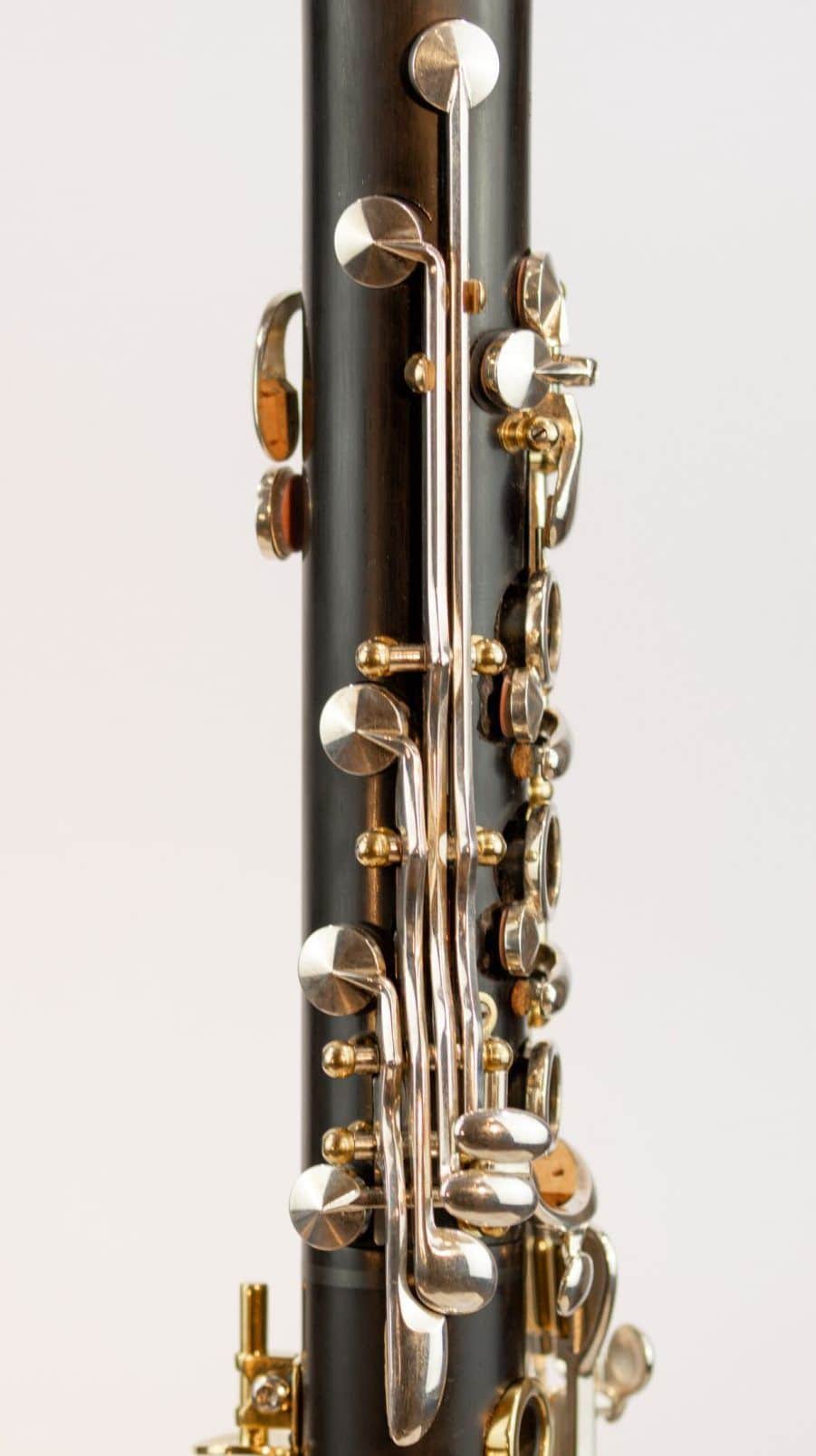
a-bb trill
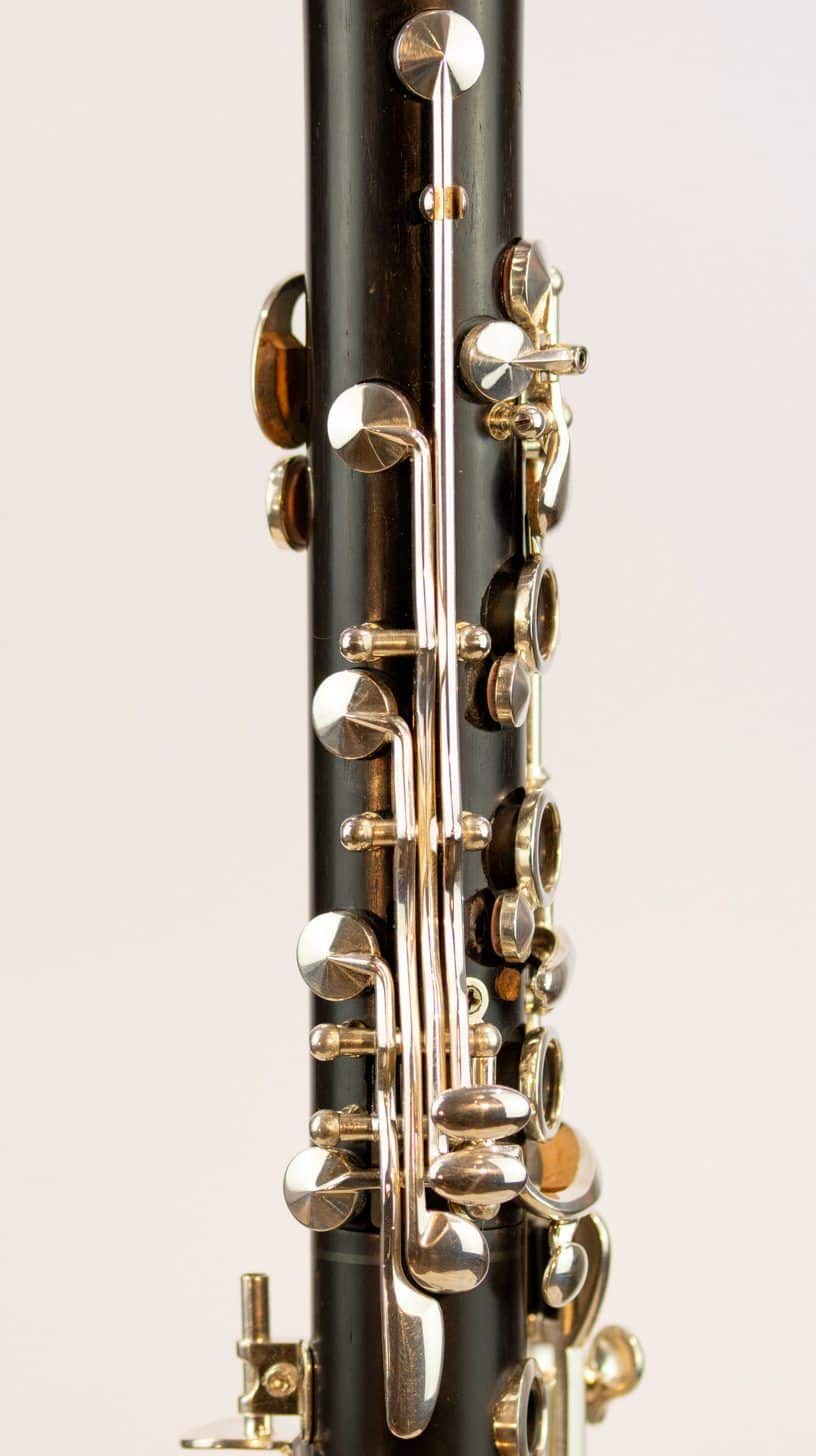
f-g trill
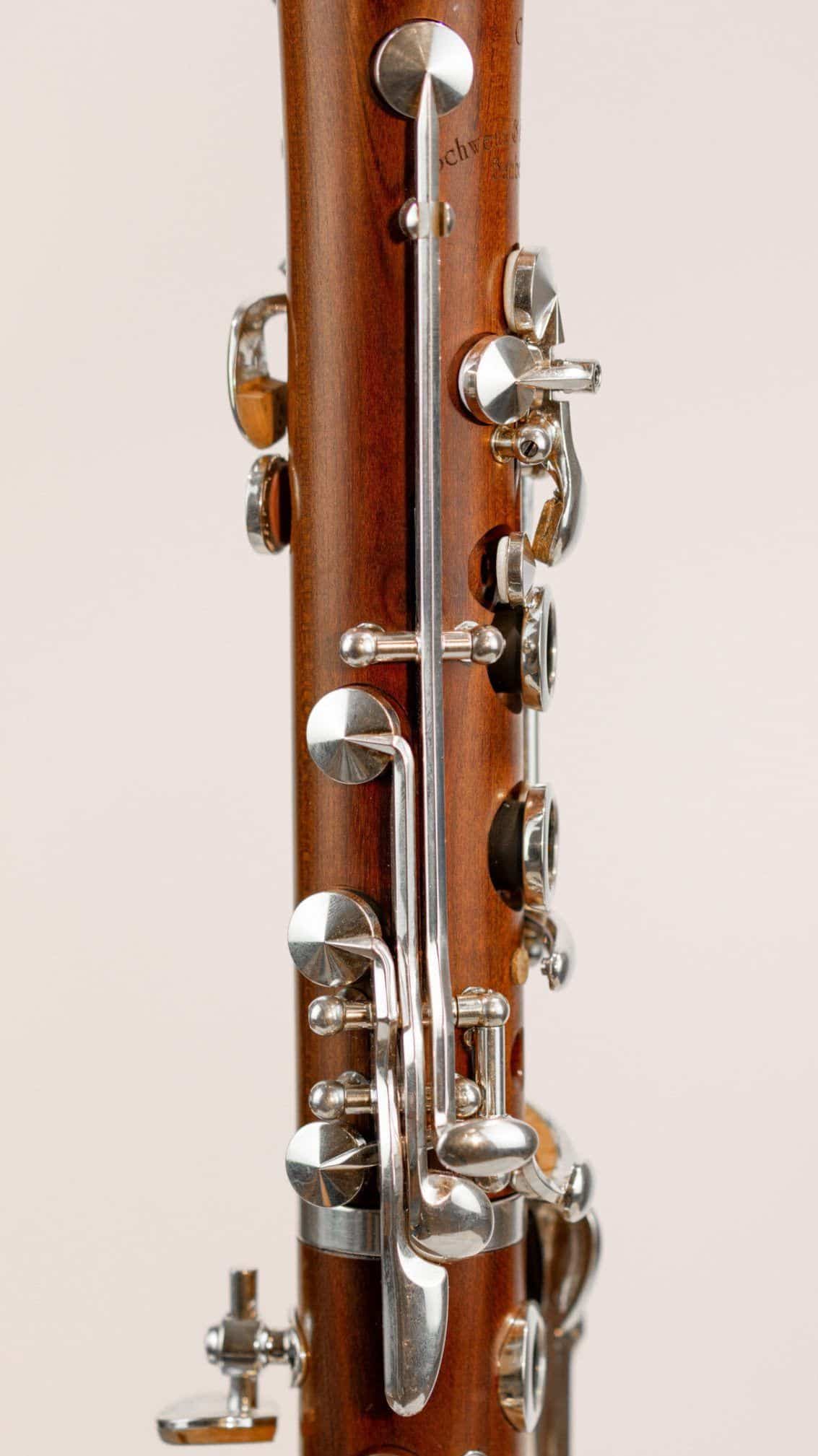
3 trills
Ring key mechanism on the lower joint
Fork-f with A/e” mechanism: a smaller tone hole for the ring finger on the right is supplemented by a resonance hole underneath. This keeps the A low enough and the e” high enough.
Fork-f with cross mechanism: The B/f” sharp tone hole moves laterally under the right hand to the side of the body, giving the index finger more space to play comfortably. We particularly recommend our cross mechanism for players with large hands and wide fingers.
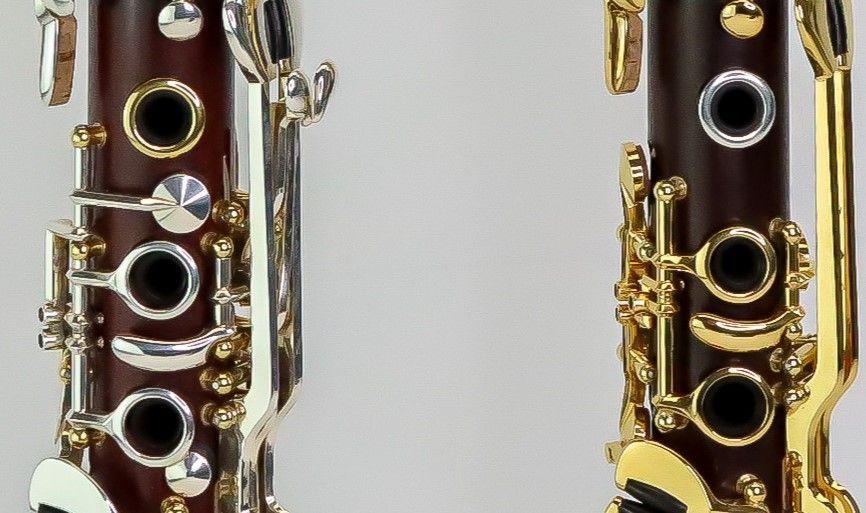
left: A/e” mechanism, right: cross mechanism
f and e flat levers
Both levers for the left little finger, f and e flat, are alternative fingerings for the keys otherwise played with the right hand and date from the time of the Baermann/Ottensteiner clarinet around 1860. For a long time, the e flat lever was used instead of a fork f resonance key in order to be able to intonate the fork f” high enough. Today, the f-lever is preferred in order to be able to avoid slipping the ring finger on the right and to avoid the sound of the fork fingering. Where we can get to know our customers’ hands, these lifters are positioned so that the little finger can make optimum use of them. Find out more on our page on custom-made products.
With us, you have the choice of having both levers fitted to your instrument, just one of them or none at all. On request, we can also build our Model 2000 so that one or both of the levers can be easily retrofitted.

f and e flat levers

only f- or e flat-lever
Split c-key
Without this mechanism, playing the c” sharp is only possible with both little fingers. With a split c key, the c sharp” can also be played with the alternative fingering with the left little finger only. In addition, G/d” sounds much freer because two semitone holes are open and not just one whole tone hole.

with split c-key

without split c-key
Bell mechanism
Schwenk & Seggelke clarinets are available without any bell mechansim, with a low E-mechanism or with a low E-F mechanism. In some rare cases, we have also built clarinets with the low F-mechanism only. The low E-mechanism corrects the intonation of the low E through a resonance hole in the bell. The low E-F mechanism also corrects the low F through a small resonance hole with a corresponding key mechanism on the lower joint. These two mechanisms are the same for all Schwenk & Seggelke models in A and B flat.
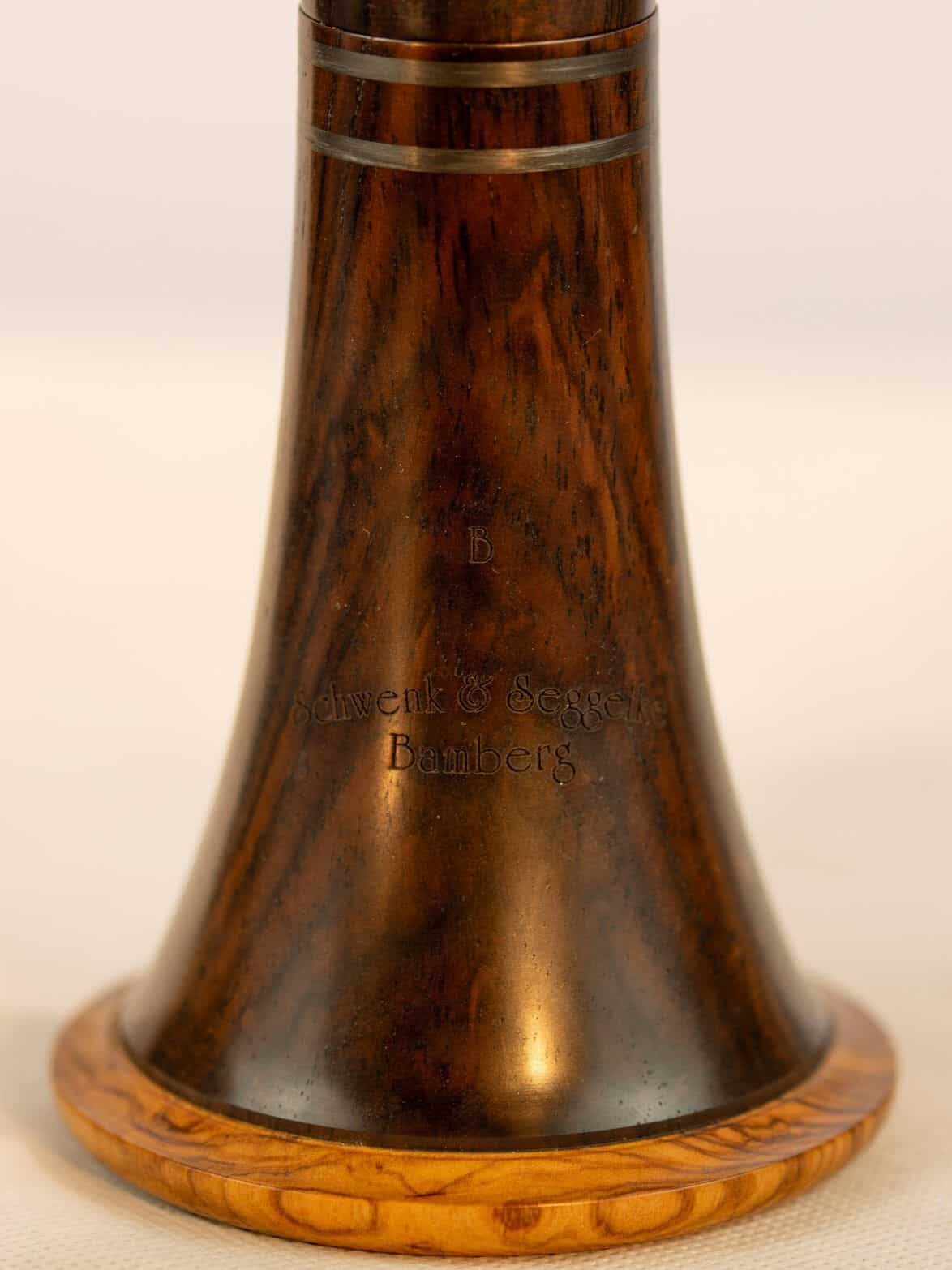
without bell mechanism
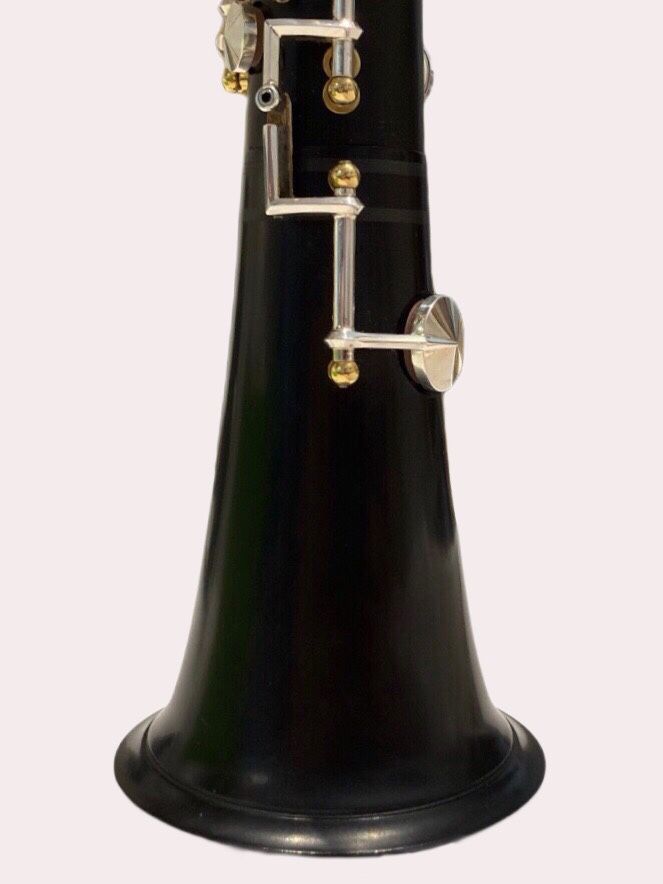
with low-e mechanism

with low-e-f mechanism

ABOUT CLARINETS WITH
the German fingering system
The German fingering system: A worldwide renaissance
Our instruments with a German fingering system are by no means limited to Germany, but are now being used more frequently all over the world. The origins of this system go back to the tone hole arrangement of historical clarinets and are characterized by a (played) G major scale without fork fingerings. A sound experience that fascinates musicians and listeners alike.
Innovation since the late 19th century
Since the late 19th century, almost all clarinets with the German fingering system have also been equipped with an extended keywork. Most of its semitone holes are open, which allows a chromatic scale to sound evenly. This innovative development enables versatile and precise sound control that will delight musicians.
The diversity of the German fingering system
In Germany, two bore concepts have emerged over time that make clarinets with the German fingering system unique. The instruments of the Saxon school are characterized by a narrow bore with slightly smaller tone hole diameters. There were also instruments with a much wider bore and larger tone holes both in central Germany and in what is now Bohemia/Czechia. Both variants differ in terms of blowing resistance and require different reeds and mouthpieces.
MODEL 2000
INNOVATIONS

The German fingering system
Bore variants

Instruments with a narrow bore
These clarinets have more blowing resistance and harmonize ideally with an open reed and mouthpiece combination. The easy response and precise control make it the perfect choice for demanding soloists.

Instruments with a wide bore
These clarinets offer less blowing resistance and are go perfectly well with a more closed reed and mouthpiece combination. Its warm and full sound is particularly suitable for orchestral music and chamber music.
Why a unique specimen?
WhySchwenk & SEGGELKE?
Each Schwenk & Seggelke clarinet is unique and represents the time and experience, craftsmanship and love of music that we put into our instruments. Discover how hundreds of separate parts are turned into innovative art and incomparable sound.
MANY YEARS OF EXPERIENCE
HANDMADE BY SOUND MASTERS
FASCINATING
SOUND EXPERIENCE
INDIVIDUALLY
TAILORED
The right
Mouthpiece DOES IT
Perfection in the art of the clarinet
The mouthpiece plays a decisive role in the blowing resistance and intonation of the instrument. For Seggelke clarinets, we recommend playing our instruments with mouthpieces with the bore we have modified. These customized mouthpieces bring out the full potential of your clarinet and let your musical interpretation shine.


